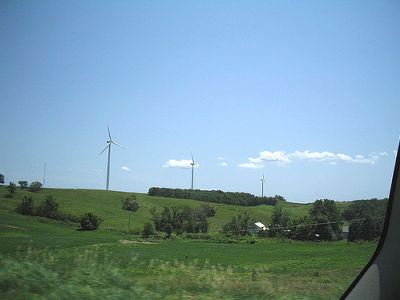Demand for sheep surges to 'weed' solar power plants

As construction of large-scale solar power generation facilities, including solar panels, progresses in recent years, one of the issues is how to deal with the weeds that grow around the facilities. It is said that there is an increasing demand for sheep to eat grass as a cheaper way to deal with weeds than relying on human labor.
6,000 sheep will soon be grazing on 10,000 acres of… | Canary Media
Enel announces largest US solar grazing contract
https://www.enelnorthamerica.com/about-us/newsroom/search-press/press/2024/08/solar-grazing
Many solar panels are built on rooftops or on contaminated land that cannot be used for other purposes, such as the sites of former nuclear power plants. However, in regions aiming for a carbon-free society in the future, it is impossible to meet the demand for solar power generation without using farmland, and in some areas, the construction of facilities on farmland is increasing.
When solar power generation facilities are built on farmland, it is common to leave the grass as it is for environmental reasons, but if the weeds are not cut regularly, the solar panels will be shaded and power generation efficiency will decrease. However, if you try to remove the overgrown grass with machinery, stones and debris may fly up and damage the panels, so a cheap method of weeding that is also environmentally friendly is being explored. One method that has attracted attention is weeding using sheep.

JR Howard of Texas Solar Sheep is one of the people who runs a business that rents out sheep to solar power plants. When he started the business, he only had 400 sheep, but in three years, he has grown to raising more than 10,000 sheep, and he sends the sheep to solar power plants around the country.
The sheep can get into every nook and cranny under the panels, so they can weed out the weeds without any problems, and their waste is a natural fertilizer. The sheep also benefit from the shade from the solar panels, so they don't need as much water as they would if they were grazing in the open space, according to Howard. Howard also does a business raising sheep for meat.

Enel's next solar power generation facility, where Howard will be lending 6,000 sheep, has eight locations in Texas alone, covering a vast area of land equivalent to nearly 75% of Manhattan . According to Enel, when they previously tried weeding with sheep, they found that it improved soil quality, increased biodiversity of native plants and insects such as bees, and reduced soil erosion, so they focused on the importance of sheep in incorporating sustainability into their solar power generation projects.
'The growing demand for weed control on solar farms is a huge opportunity for the sheep industry. I hope one day I can sell part of my flock and help other farmers start their own solar sheep businesses - that's a real goal,' Howard said.
Related Posts:
in Creature, Posted by log1p_kr







